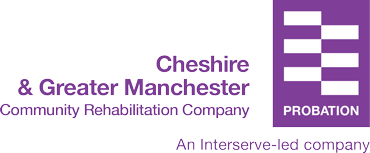Custody suite initiative applauded

A pioneering scheme launched in Greater Manchester nine months ago has been applauded by dignitaries at an official launch event held this week.
The unique partnership works with people referred from police custody to help make sure they get the help they need to stay out of trouble. Across Greater Manchester approximately 35,000 people end up in police custody every year.
Lord Bradley, whose initial report into the problems associated with mental health and the criminal justice sector in 2009 helped prompt the drive to launch the partnership, attended the official launch event, together with Manchester’s deputy mayor Beverley Hughes and NHS commissioners and assistant chief constable Rob Potts from Greater Manchester Police.
The partnership – commissioned by the Mayor of Manchester Andy Burnham and Greater Manchester Health and Social Care Partnership – launched in May this year.
One of the teams delivering the service is employed by the Cheshire & Greater Manchester Community Rehabilitation Company (CGM CRC) in partnership with Mitie Care and Custody (Health) and Northwest Boroughs Healthcare NHS Foundation Trust. The team work with police at Greater Manchester’s custody suites to identify problems early and seek ways to support people to keep them out of trouble.
The deputy mayor said: “This is a groundbreaking service. We know a high percentage of people admitted to custody have mental health needs, but running a partnership across 10 local authority boundaries is a radical step and one that has only been made possible by devolution because that’s given us the ability to integrate services.
“Anecdotal evidence from police officers in the custody suites say the impact has been transformative.”
CGM CRC employs 10 Community Support Navigators headed by Chris Martin, the company’s Integrated Partnership Manager.
Navigators meet with people admitted to custody, and together with healthcare specialists, provide a service which assesses people and considers if it is possible to progress cases without having to send them through the judicial system. If the offence’s severity necessitates further action, then the team helps to ensure that the court can has a proper medical analysis to help them sentence the offender appropriately.
Lord Bradley said: “The service in Greater Manchester is the exemplar, and I believe it can be developed nationwide.
“My report recommended health and social care was embedded at police stations in order to identify people’s vulnerabilities. Police are not health workers. This service provides the help they need to reach the right decisions at the earliest opportunity.”
Chris said: “Our partnership involves three organisations coming together and drawing on different expertise to ensure service users get the right support they need.
“We cannot force change, but we need to be able to provide that positive spark to create long lasting change.”
The service has seen 17,275 people in nine months, and 90 per cent of them have been seen within an hour of reaching the custody suite.
The navigators help stop people from getting into more trouble by things such as: helping them find stable accommodation; accessing debt and benefits advice; accessing substance misuse support and help with employment, training and education.
Stephanie experienced her first court appearance having being charged with three assaults. She benefited from the service, having never previously been in custody before.
Stephanie said: “I was really scared and worried, it was a shock to the system. The person who worked with me was amazing, and gave me so much moral support.
“She helped me access the right agencies for me to get help with my alcohol problem and advice about domestic abuse. She listened to me and helped me cry and I knew she was always on the end of the ‘phone if I ever needed her.”
Larry Collier, JP Chair of the Greater Manchester Magistrates’ Bench, said: “The vast majority of the cases myself and my 840 colleagues from across the region see are first appearances. Often the only person in the court room who has had any contact with the defendant is their solicitor, and that could have been for only a very brief period of time.
“The court is filled with professionals whom the defendant doesn’t know, and for many it must be an incredibly intimidating place.
“JPs live and work in our communities. We are not removed from the reality of what life is like for the vulnerable who live among us.
“We see people who suffer from mental health issues. But it’s unlikely that anyone in court will have a medical background. And so what this service is trying to deliver is of the utmost importance because it helps us develop a fuller picture of the individual standing before us in court.
“Someone who has additional vulnerabilities is at a disadvantage if we are unaware of their situation. This service provides the assessment and enables the court to see the whole picture. I’m confident this service will prove beneficial.”
